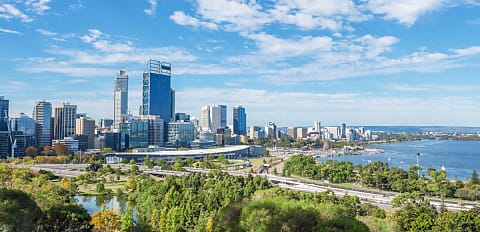Four key factors went into determining what makes a great area for a start-up: Talent pool, business landscape, internet speed, and cost of living.
The study by Reckon revealed the top 10 cities to start a business:
- Perth
- Brisbane
- Adelaide
- Melbourne
- Canberra/Queanbeyan
- Toowoomba
- Mackay
- Ballarat
- Gold Coast/Tweed Heads
- Sydney
Perth has shot up the ranks at breakneck speed. Last year, it ranked 20th. Reckon attributing the rise to a boost in digital infrastructure.
Adelaide also shot up the ranks, climbing from 13th to third place.
However, the greatest rise was Canberra/Queanbeyan, which climbed from 31st to fifth place. This is reportedly due to the area’s skilled workforce and connectivity.
Other cities, such as Geelong, fell from the top 10. The Victorian city was last year’s top spot.
Another Victorian city, Ballarat, fell from second place to eighth. These two areas reportedly fell off due to challenges with digital capability, affordability, and access to talent.
Reckon CEO Sam Allert said establishing a business is becoming increasingly challenging due to mounting pressures.
“Starting a small business in Australia isn’t easy, especially with the rising cost of living. But small businesses really are the engine room of our economy, and we’re seeing growth pop up in places you might not expect. When we looked at things like talent, infrastructure and affordability, it became clear that opportunity is no longer confined to the capital cities,” he said.
Cash flow continues to be a key issue for businesses. A recent Prospa study highlighted how SME clients need brokers more than ever to help secure much-needed financing.
Two-thirds (66 per cent) of SME respondents said they’ve experienced cash flow stress in the past year. Another 13 per cent said they have no cash reserves at all.
To address these issues, 30 per cent said they’re seeking external funding in the coming year. The average loan size was $24,701.
Fortunately, lender appetite for funding SMEs is strong. The second quarter of 2025 recorded a 20 per cent surge in commercial finance loan settlements.
“For business owners, flexibility is everything. It’s important to always keep an eye on emerging markets with the right mix of talent, affordability and infrastructure. A lot of the time, the best opportunities are in places flying under the radar. Invest in digital, stay close to your local community and don’t be afraid to think beyond the big cities. That’s where you’ll often find the real potential,” added Allert.
[Related: Cash flow crunch: Why SMEs need brokers more than ever]

